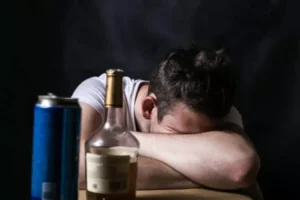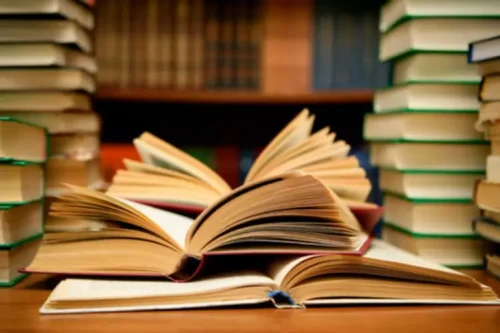Uncategorized
How to Get Rid of a Caffeine Headache

Treatment options vary, from acute treatment to relieve symptoms to preventive treatment to reduce the number of attacks you experience. There are also behavioral treatment options and lifestyle changes that can help. Mounting evidence suggests there may be a connection between migraine and mental health. Anxiety disorders and depression are two of the most commonly reported mental illnesses among people who are diagnosed with migraine. By learning how migraine and mental health impact one another and ways to manage both, you can improve your quality of life.

Associated Data

Similarly, common beliefs may influence patients habits, e.g., the conviction that “red wine causes migraine”, even if studies present conflicting evidence 80, 81. Consequently, it seems likely that people with migraine to some extent avoid alcohol, which would be one interpretation of our results. The exact mechanism behind this observation may indicate that migraine leads to alcohol-avoidance, rather than alcohol having any protective role against migraine. However, further studies related to primary headaches and alcohol consumption drug addiction treatment with low risk of bias are required. Additionally, patients and physicians should consider the latest medical data, in order to avoid the myths about alcohol consumption and primary headaches.
What Was the First Light Beer and How It Changed the Beer Industry Forever
Individuals with anxiety or depression may be more sensitive to the effects of caffeine and experience headaches after drinking coffee. Caffeine is a diuretic, which means that it can increase urine production and lead to dehydration if not balanced with sufficient water intake. Dehydration is a common cause of headaches, and it’s often exacerbated by caffeine consumption. It is widely reported that red wine is the worst culprit for causing an alcohol-induced headache, with white wine being not too far behind in second place. This type of headache is known as the ‘cocktail headache’ and comes on shortly after taking an alcoholic drink.
- According to survey data from the USDA, the average 8-ounce cup of hot, brewed, black-leaf tea has about 50 mg of caffeine.
- In later sections of this article, we’ll look at why certain specific alcohols are more prone to cause post-drinking headaches.
- If you are prone to headaches, it is probably best to avoid chamomile tea or any other caffeinated beverage.
- Caffeine can cause blood vessels to constrict or narrow, which can lead to a decrease in blood flow to the brain.
- White wine is made without the grape skin, so it has a lower histamine content than red wine, which is made from the whole grape.
Can You Freeze Dry Beer for Long-Term Storage and Outdoor Adventures?
- If you enjoy coffee, tea, or caffeinated beverages, omaito tea is an excellent choice.
- Hangovers are another significant factor contributing to post-drinking headaches.
- A person who is sensitive to caffeine may experience nervousness or anxiety if they consume a lot of caffeinated tea.
- An imbalance in electrolytes can lead to further complications like muscle cramps and fatigue.
- Whether the effect is immediate or delayed, you may have a headache after drinking too much alcohol.
This type of headache is less common, but many people may notice the symptoms developing within 3 hours of drinking. However, the headache is known to clear after 72 hours of abstinence. A second explanation for the results presented in our meta-analysis might encompass a certain protective role of alcohol with regards to migraine. However, according to this idea, populations with higher migraine prevalence should have lower alcohol consumption. In Europe, alcohol consumption is higher than in Asian countries, but in Europe alcohol as a trigger is reported more frequently than it is in Asia 87. Therefore, this hypothesis seems a less likely explanation for our results.

Tannins, like tannins, have an astringent nature and can irritate digestive tissue, resulting in uncomfortable symptoms such as nausea or stomach ache. This effect can occur in the absence of a significant amount of tea. Finally, there is some debate over whether tea tannin can cause headaches, but there is currently no scientific evidence to back up this claim.
Any remaining articles were screened by title or abstract randomly by the authors (BB, PN and MS1) with the below presented inclusion/exclusion criteria and PRISMA 2020 guidelines. Hence, papers that did not meet the inclusion criteria were excluded. In the final step, to assess the exact number of included articles, the authors (BB, PN and MS1) read the appropriate full-text papers and confirmed their relevance to the primary objective. In cases of conflict between authors in terms of the inclusion of a particular paper, the fourth researcher why does drinking cause headaches (MWP) decided upon a solution to the problem following discussion. You could get a headache within 30 minutes to 3 hours of drinking.
- Individuals from different ethnic backgrounds may have variable sensitivity to alcohol.
- It could be just one type of food — like beans or nuts — or many foods, such as avocados, bananas, cheese, chocolate, citrus, herring, dairy products, and onions.
- Waterhouse said that’s because the drug also causes the toxin to build up in the body when normally an enzyme in the body would break it down.
Headaches from beer often stem from several key factors, impacting your enjoyment of this popular beverage. As a result, people can end up accumulating the toxin acetaldehyde, explains lead author Apramita Devi, postdoctoral researcher with the UC Davis Department of Viticulture and Enology. Our website is dedicated to providing accurate and up-to-date information about different types of tea. We believe that tea is more than just a beverage – it is a way of life. Our goal is to help you learn more about tea so that you can enjoy it to the fullest. Remember, part of the reason why alcohol gives me (and you) a headache is that it dehydrates you.
Why do I get a headache when I drink alcohol?

When blood sugar drops too low following this spike (reactive hypoglycemia), it can cause symptoms including headache, dizziness, and irritability. Additionally, the high sugar content in soda causes rapid spikes and drops in blood glucose levels. These fluctuations can affect brain function and contribute to headache onset.
Understanding Caffeine and Its Effects on the Body

Caffeine affects blood vessels in the brain, sometimes causing vasoconstriction followed by rebound vasodilation, which can trigger headaches or migraines in sensitive individuals. Certain medical conditions may predispose individuals to headaches when drinking water. Conditions like migraines or cluster headaches often exhibit complex triggers that vary from person to person. When the body becomes accustomed to regular caffeine consumption, it can develop a dependence on the stimulant. If caffeine intake is suddenly stopped or reduced, the body may experience withdrawal symptoms, including headaches. This is because the brain has adapted to the constant presence of caffeine and needs time to readjust to its absence.
These findings underscore that multiple ingredients within sodas contribute jointly rather than any single factor alone causing headaches universally. Opt for beverages without artificial sweeteners or preservatives when possible. Natural fruit juices diluted with water or herbal teas provide flavor without triggering chemicals. If you have a dehydration headache, you might be more likely to develop a migraine.
